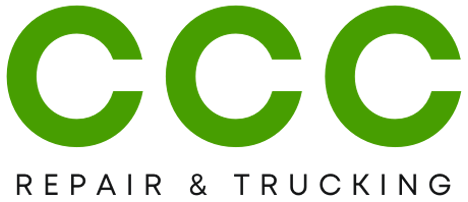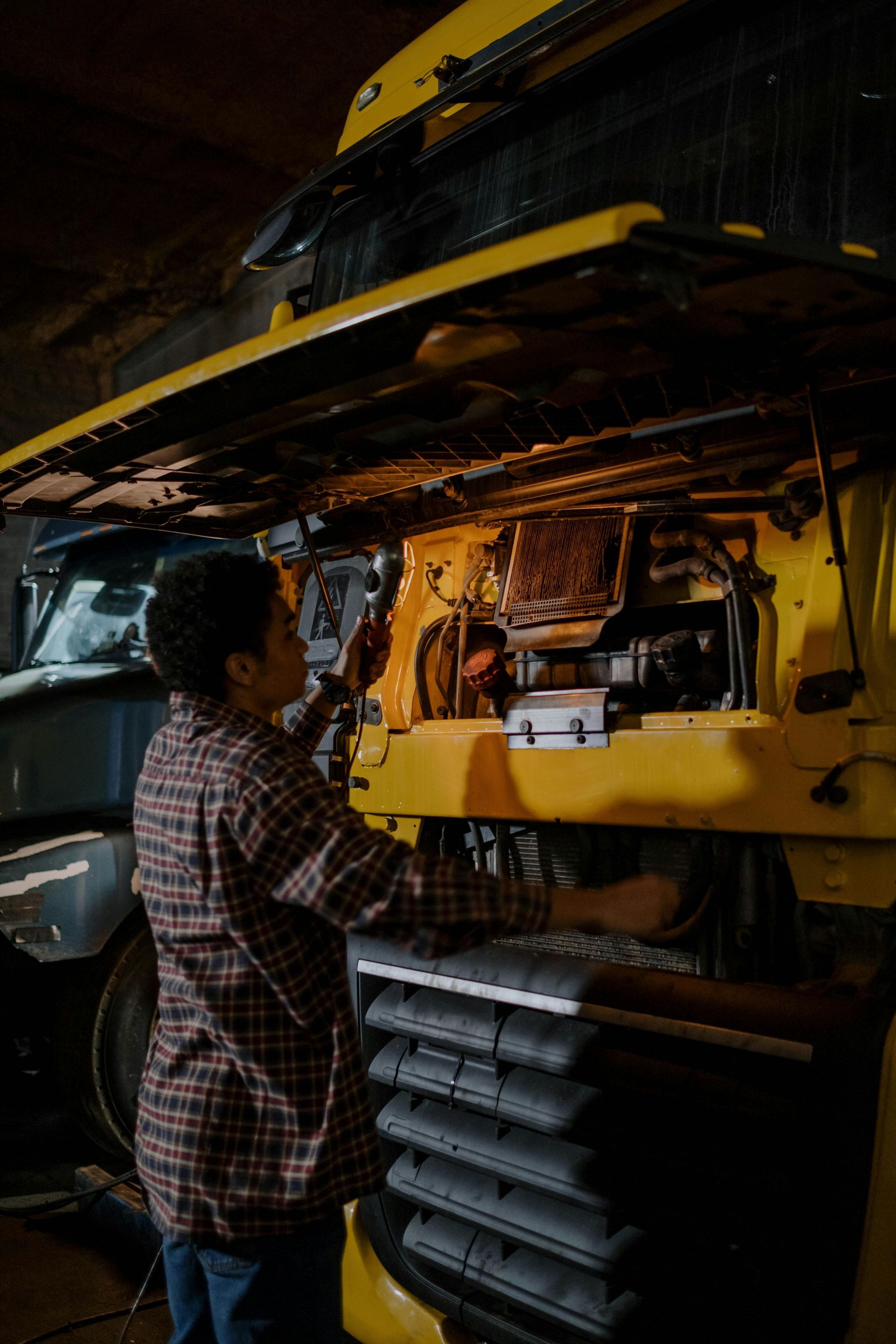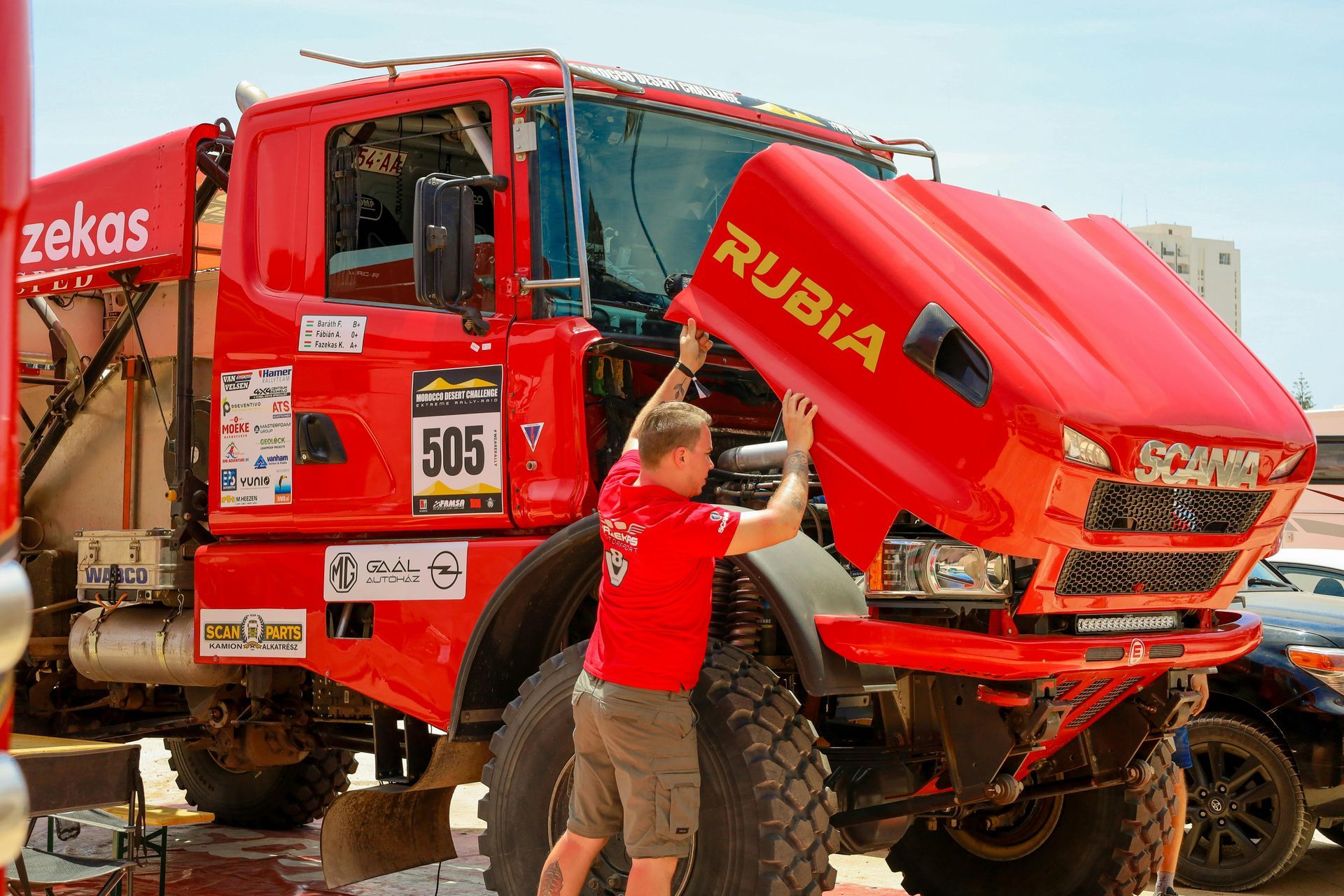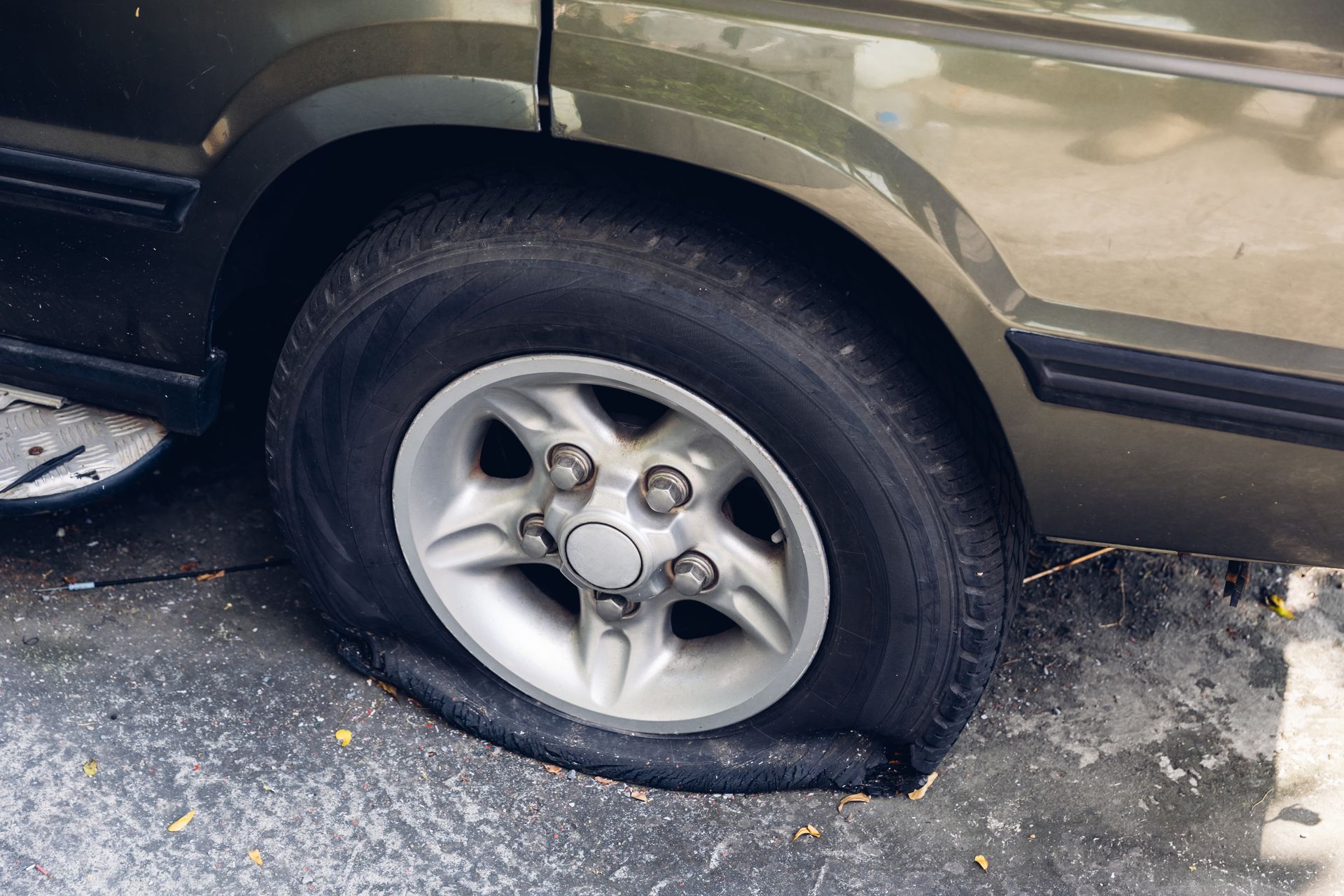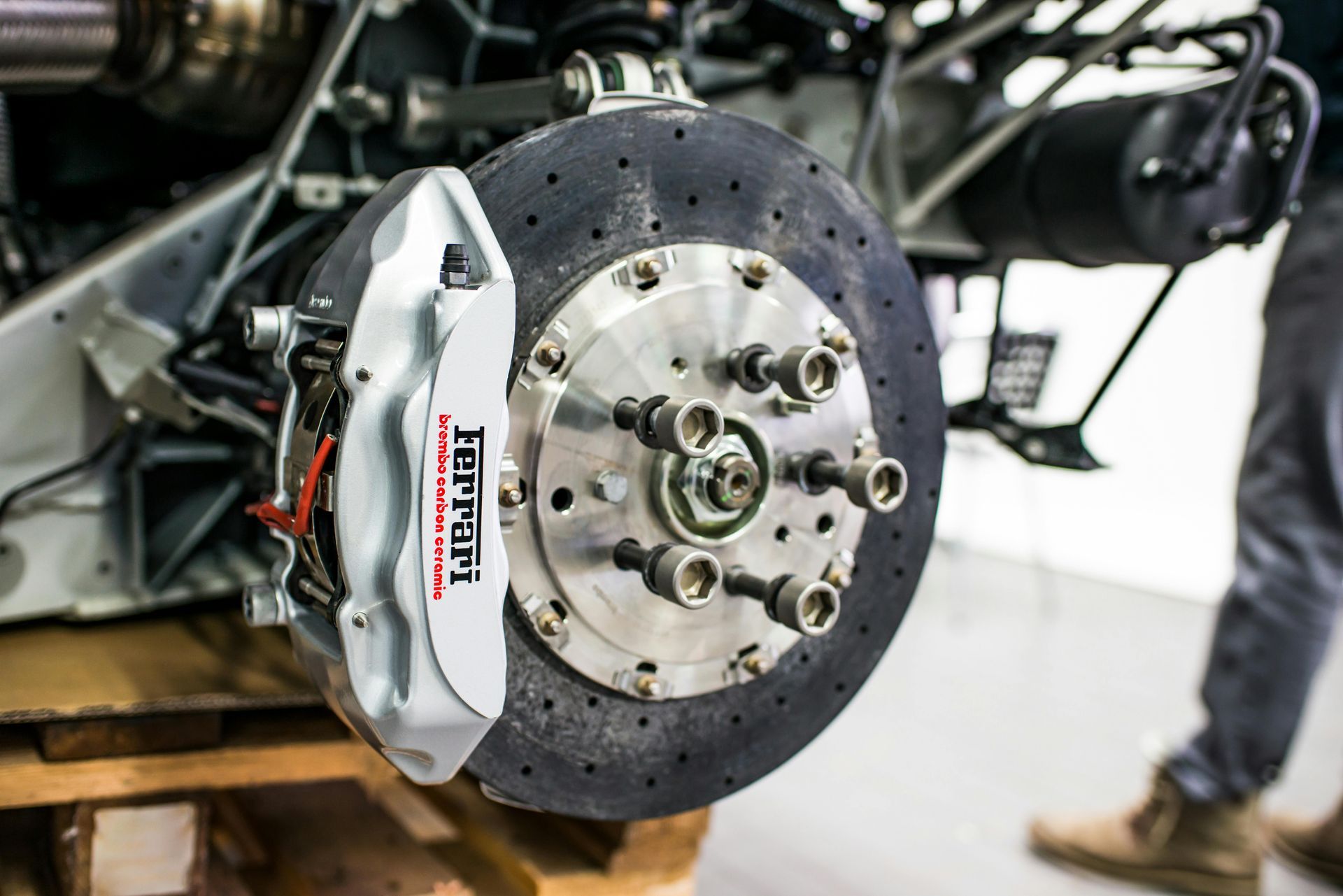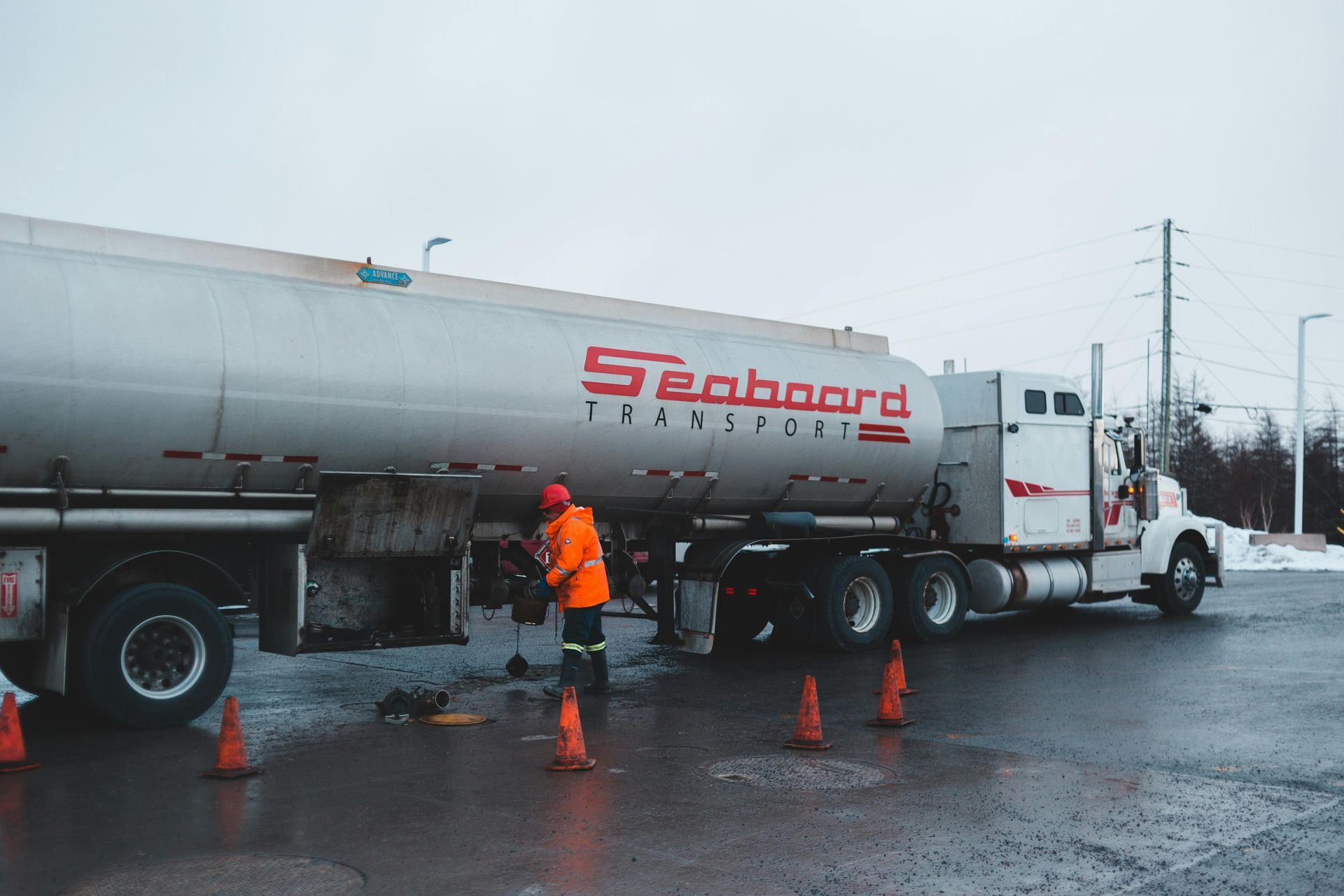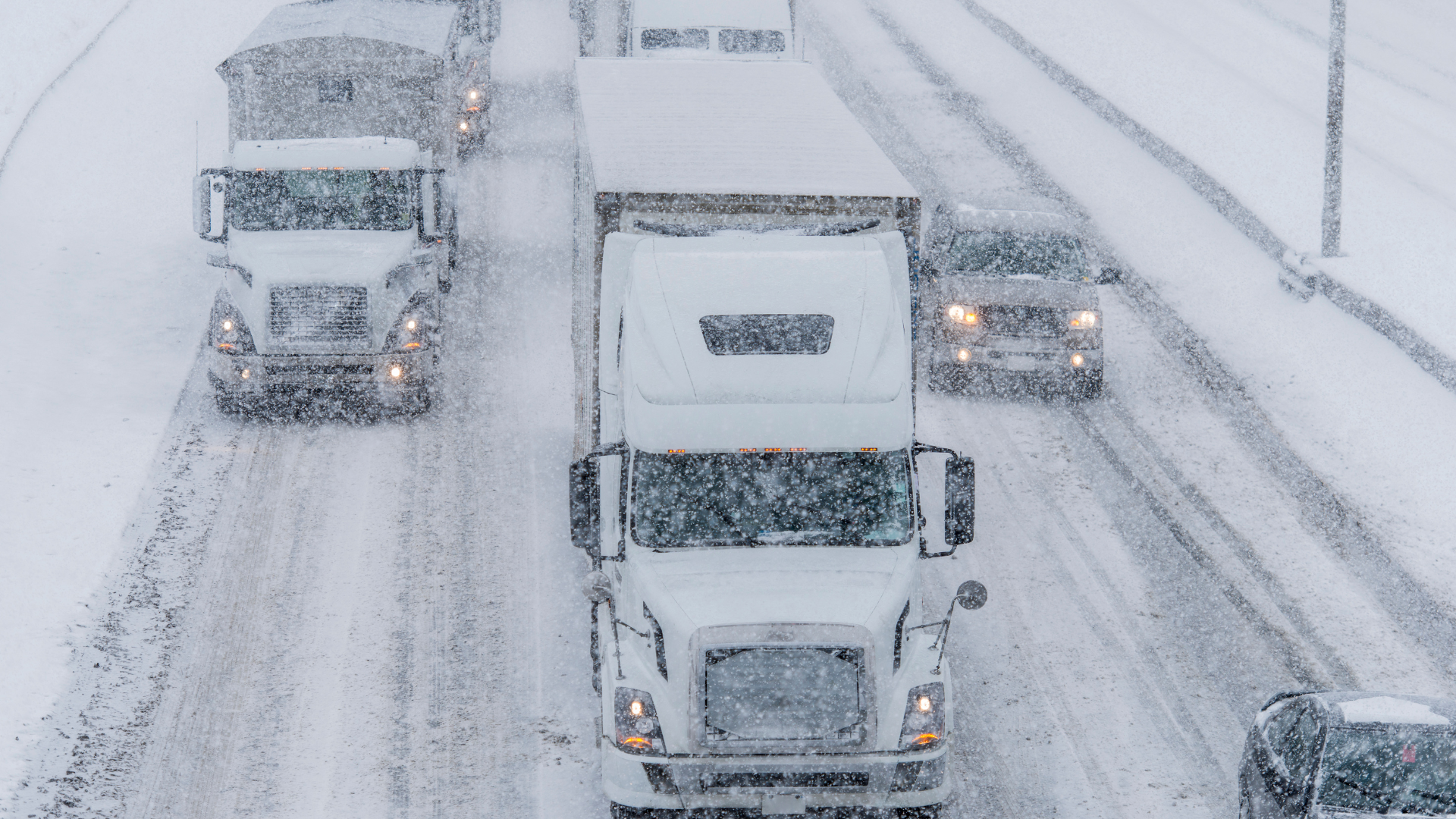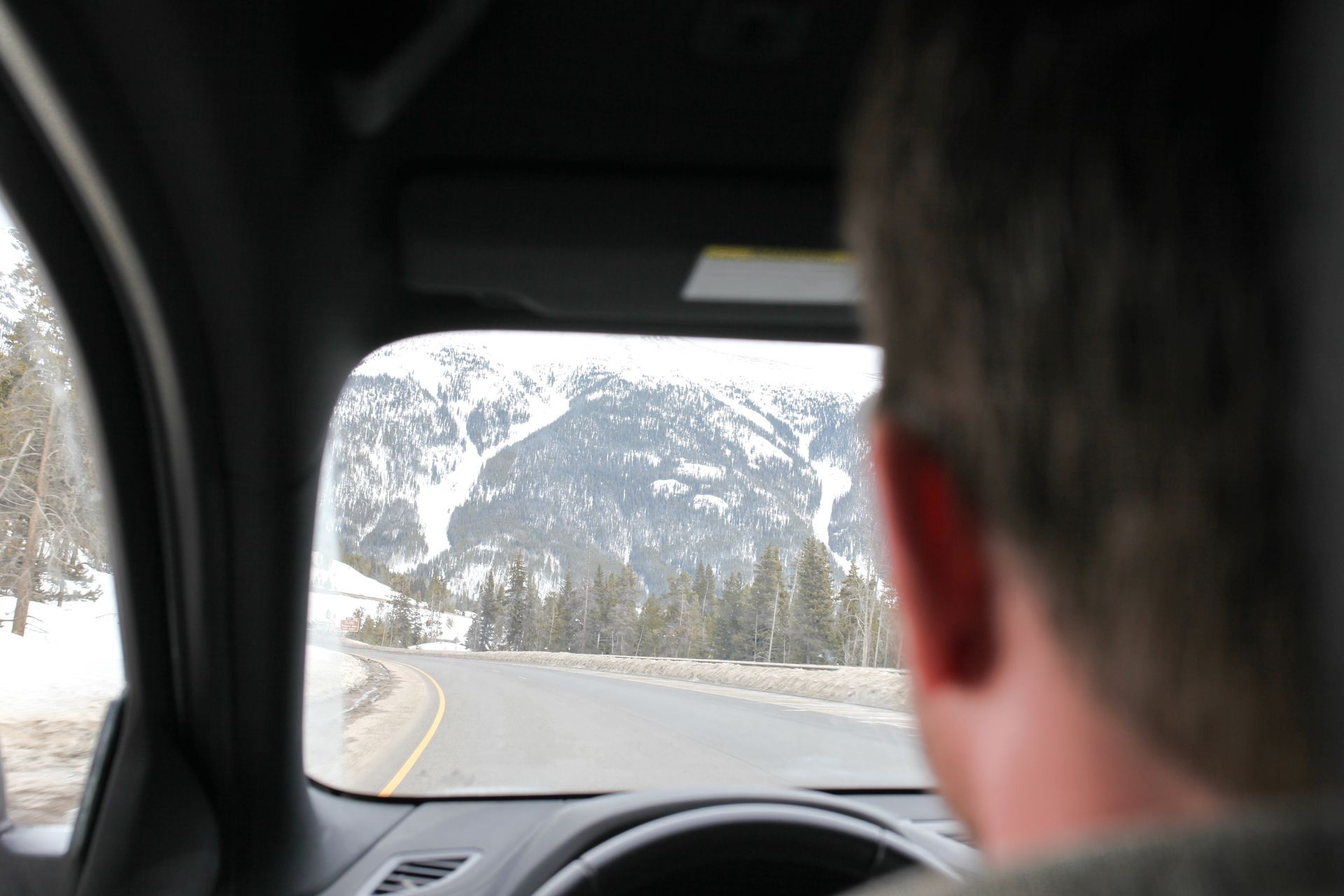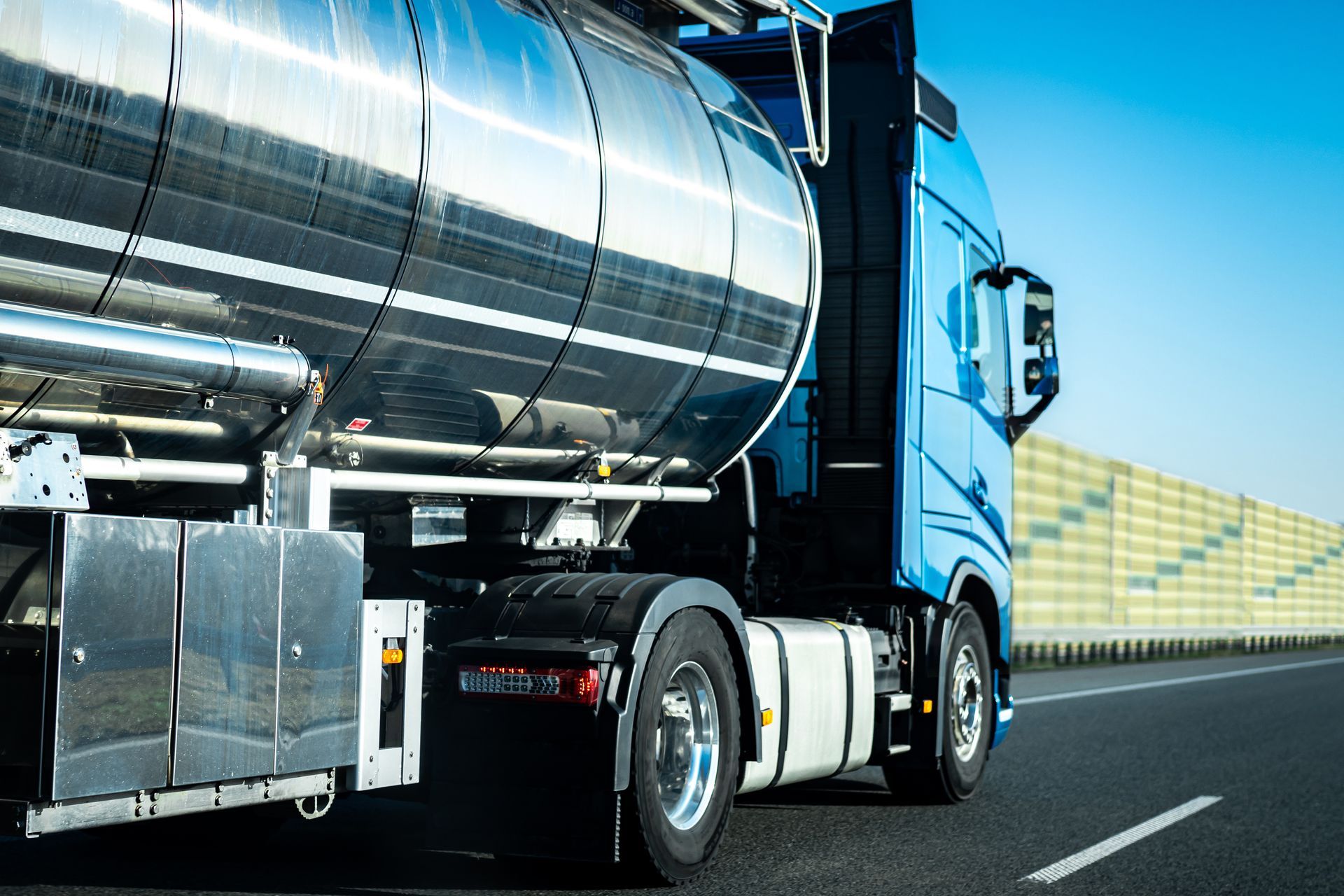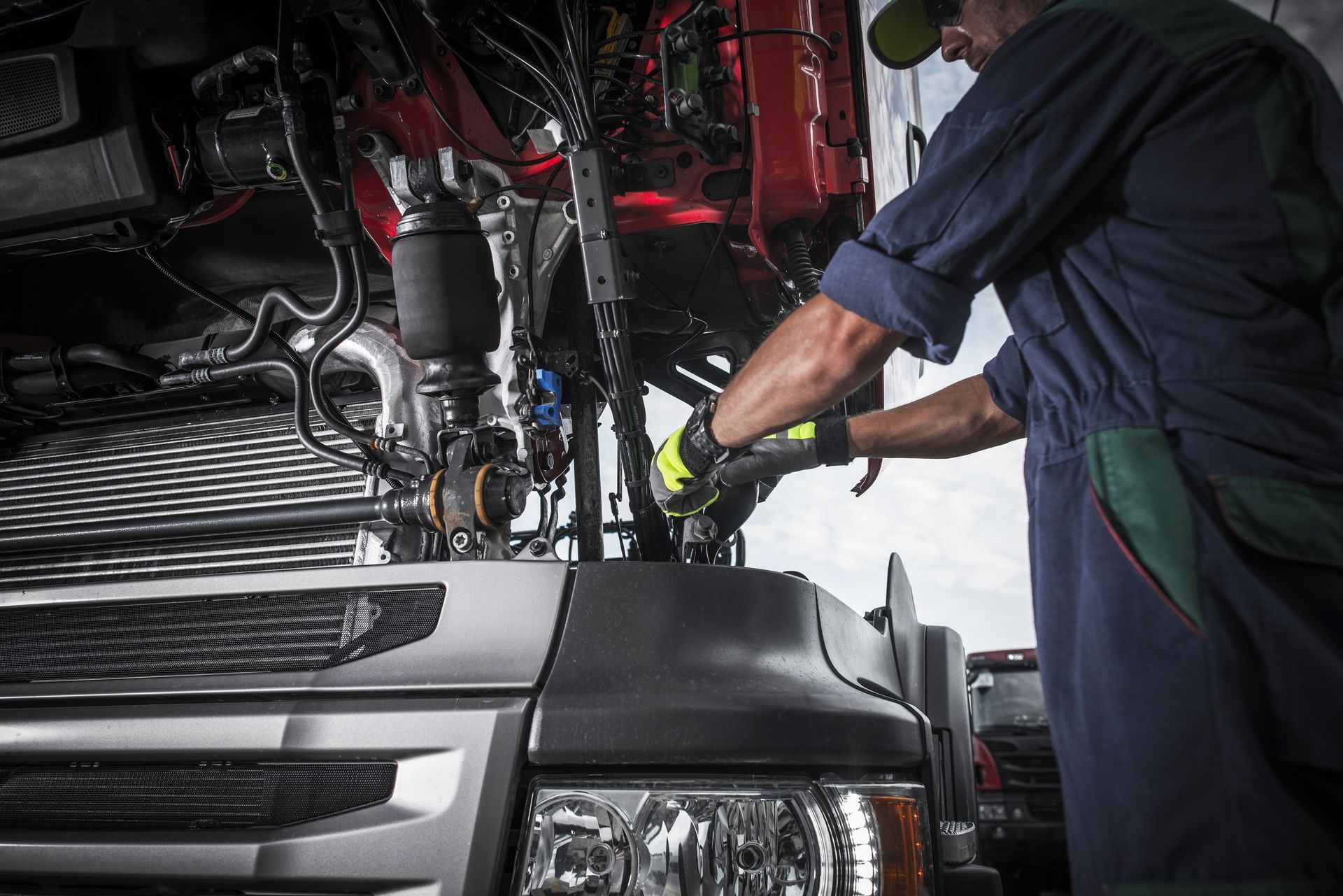Common Cold Weather Failures in Diesel Trucks (And How to Avoid Them)
For commercial truck drivers and fleet managers operating in Colorado and other high-altitude regions, winter brings more than icy roads and white-knuckle mountain passes—it brings serious mechanical risks to your diesel truck.
At CCC Repair and Trucking, we’ve responded to hundreds of cold-weather breakdowns across Southern Colorado. From fuel system issues to frozen air lines and dead batteries, winter can push trucks past their limits if they’re not properly maintained or winterized.
In this guide, we’ll cover the most common cold-weather failures we see in diesel trucks, why they happen, and how you can prevent them with the right maintenance strategy.
Why Diesel Trucks Struggle in Cold Weather
Diesel engines rely on high compression and heat to ignite fuel. When temperatures drop, everything from the engine oil viscosity to battery performance and fuel consistency changes. The result? Hard starts, sluggish performance, and system failures that leave you stranded.
In places like Trinidad, Raton Pass, Walsenburg, and throughout rural Southern Colorado, these issues are made worse by:
- High elevation and thinner air
- Extreme temperature swings between day and night
- Remote roads with limited shoulder space or service access
- Frequent snowstorms and ice accumulation
Knowing what’s most likely to go wrong—and when—is the first step toward staying on the road safely through the coldest months.
1. Fuel Gelling in Freezing Temperatures
Diesel fuel contains paraffin wax, which can solidify in cold temperatures. When this happens, the fuel thickens or “gels,” clogging the fuel filter and preventing the engine from getting the fuel it needs to run.
Symptoms include:
- Engine cranks but won’t start
- Stalling after startup
- Whining or high-pitched fuel pump noise
- Decreased throttle response
How to prevent it:
- Use winterized diesel blends (No. 1 or treated No. 2 fuel)
- Add anti-gel fuel additives before entering sub-zero temps
- Replace fuel filters before winter hits
- Keep the fuel tank at least half full to reduce condensation
If your truck is gelled up, CCC Repair can respond on-site with fuel thaw treatments, filter replacements, and heated storage support if needed.
2. Frozen Air Brake Lines and Valves
One of the most common and dangerous winter failures involves frozen air lines. Moisture in the lines can freeze overnight, preventing the air system from building pressure. In serious cases, frozen lines can cause brake lockup or prevent trailer brakes from releasing.
Symptoms include:
- Air pressure not building
- Warning buzzer or low-pressure light
- Trailer brakes won’t release
- Sudden loss of braking performance
How to prevent it:
- Drain air tanks daily in winter
- Replace worn or contaminated air dryer cartridges
- Use alcohol-based air line antifreeze as needed
- Insulate exposed air lines in extreme cold zones
CCC Repair offers mobile brake diagnostics, line thawing, and air system repairs at roadside or in-shop. We can also install new dryers, lines, or valves as needed.
3. Weak or Dead Batteries
Cold temperatures significantly reduce a battery’s cranking power. A battery that works fine in the fall may struggle—or fail completely—once the temperature drops below freezing.
Symptoms include:
- Clicking or no-start conditions
- Dim interior or exterior lights
- Repeated jump-starts required
- Warning light for battery or charging system
How to prevent it:
- Test all batteries before winter begins
- Replace batteries over 3 years old, especially if the starting power is reduced
- Inspect and clean terminals for corrosion
- Check alternator output and belt tension
Our technicians can test your battery system on-site and replace it if needed. We stock commercial-grade diesel truck batteries that perform well in Colorado winters.
4. Viscous Engine Oil and Delayed Lubrication
In cold weather, engine oil thickens and takes longer to circulate. This delays lubrication, increases wear, and makes it harder for the engine to turn over—especially after an overnight freeze.
Symptoms include:
- Rough or prolonged starting
- Loud engine noises during the first minutes of operation
- Increased engine wear over time
- High oil pressure readings at startup
How to prevent it:
- Use winter-grade engine oil with the proper viscosity
- Allow the engine to idle briefly before driving in freezing temps
- Install block heaters or oil pan heaters for trucks parked outside
- Monitor oil change intervals more closely during cold-weather months
CCC Repair can perform cold-weather oil changes and install block heater systems to protect your engine from overnight freeze damage.
5. Electrical Failures and Moisture Intrusion
Snow, slush, and road salt wreak havoc on electrical systems. Moisture can seep into connectors, corrode terminals, and short out relays or circuits—causing everything from false sensor readings to total electrical failure.
Symptoms include:
- Dashboard warning lights
- Inoperable lights, HVAC, or trailer connections
- Sensor malfunction (DEF, ABS, etc.)
- Fuse blowouts or flickering electronics
How to prevent it:
- Inspect wiring and connectors before winter begins
- Apply dielectric grease to exposed plugs and connectors
- Seal open grommets and entry points with weather-resistant tape
- Replace cracked, brittle, or corroded wire looms and housings
Our team can troubleshoot electrical issues on-site, replace failed components, and restore full trailer light or sensor functionality.
6. Cracked Belts and Worn Hoses
Cold weather makes rubber components more brittle. Belts and hoses that are already aged may crack or break completely in freezing conditions—often leading to coolant leaks, overheating, or accessory drive failure.
Symptoms include:
- Coolant or fluid loss under the hood
- Visible belt cracks or squealing
- Overheating or power steering loss
- Steam from the engine bay
How to prevent it:
- Replace belts and hoses older than three years
- Pressure test the cooling system before winter
- Check tensioners and pulleys for wear
- Inspect all clamps and couplings for leaks
We stock common belts, hoses, clamps, and fluids in our mobile service trucks and shop inventory to minimize your downtime.
CCC Repair’s Winter-Ready Truck Services
When temperatures drop, CCC Repair and Trucking provides specialized cold-weather support for diesel trucks across Southern Colorado:
- Winter preventative maintenance programs
- On-site battery and electrical diagnostics
- Emergency fuel and air line thawing
- Block heater installation and repair
- Anti-gel diesel treatment application
- Brake and suspension inspections for snow and ice conditions
Whether you’re an owner-operator preparing for a mountain route or a fleet manager scheduling winter readiness checks, we’re here to help you stay on the road.
FAQs
How cold does it need to be for diesel to gel?
Fuel can begin to gel around 15°F, especially untreated No. 2 diesel. Blended or treated fuel can help lower that point significantly.
What should I carry in my truck during winter?
Fuel additive, air line antifreeze, spare fuel filters, a jump box, tire chains, and an emergency roadside kit. CCC Repair can help you build a winter-ready checklist.
Can you help if my truck won’t start at a truck stop or rest area?
Yes. We offer 24/7 mobile truck repair across the region. Call us anytime, and we’ll dispatch a technician to your location.
Don’t Let Cold Weather Shut Down Your Truck
Winter in Colorado doesn’t need to mean downtime. With the right preparation and a trusted repair partner, you can avoid costly cold-weather failures and stay on schedule all season long.
Call CCC Repair and Trucking for winter diagnostics, battery replacement, fuel system service, or emergency mobile repair across Southern Colorado.

